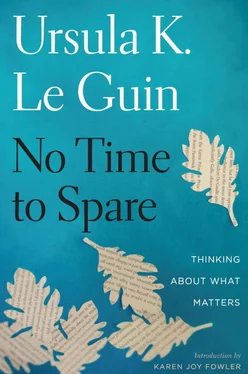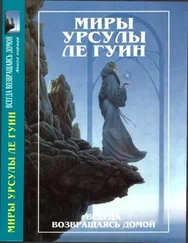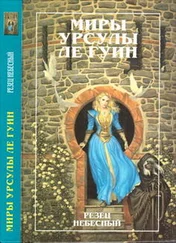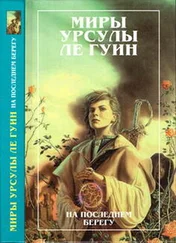I sit on the rough black steps and try to tell the secret that they keep. But I cannot.
They keep it.
In Molt
The peacock walks away
in pace of ceremony: step, and pause:
step, and pause:
a king to coronation, or beheading.
The single remnant of his glory
stripped bare, bone white,
trails behind him in the dirt.
On the Fifth Afternoon
Hundreds of blackbirds gathered in the pastures south of the house, vanishing completely in the tall grass, then rising out of it in ripples and billows, or streaming and streaming up into a single tree up under the ridge till its lower branches were blacker with birds than green with leaves, then flowing down away from it into the reeds and out across the air in a single, flickering, particulate wave. What is entity?
Read More Nonfiction from Ursula K. Le Guin

http://www.hmhco.com/bookstore/authors/Ursula-Le-Guin/60783
Visit www.hmhco.comto find more books by Ursula LeGuin.

URSULA K. LE GUIN was born in Berkeley, California, in 1929. She is the recipient of a National Book Award, six Hugo and five Nebula awards, and has been inducted into the American Academy of Arts and Letters. She lives in Portland, Oregon.
Praise for NO TIME TO SPARE
A TimeOut Book to Cozy Up to This December
A Real Simple Best Book to Read in December
A Bustle Best Book to Read in December
One of Southern Living’ s Unputdownable Reads to Curl Up with in December
A Harper’s Bazaar Best New Book to Read in December
A Most Anticipated Title of the Fall from Vulture
A Book Riot Must-Read Book for December
“This delightful book [is] inquisitive and stroppily opinionated in equal measure… In even these miscellanies, composed in [Le Guin’s] off hours, the sentences are perfectly balanced and the language chosen with care. After all, she writes, ‘Words are my matter—my stuff.’ And it’s through their infinite arrangements… that Ms. Le Guin’s extraordinary imaginary worlds have been built and shared.”
—
Wall Street Journal
“‘No Time to Spare,’ deriving from Le Guin’s online essays, covers just about anything that crosses her mind, from “lit biz” to cats to the Oregon landscape… Might there be truth to the commonplace that science fiction writers are prophets? … A year ago I argued that Le Guin deserved a Nobel Prize in literature. In fact—what a fantasy!—she ought to be running the country.”
—
The Washington Post
“In “No Time to Spare: Thinking About What Matters,” Le Guin shows that elders have plenty to teach… [She] finds inspiration in the everyday and makes it sparkle with her prose… In step with her legacy, [she] challenges us to reconsider what we automatically accept… “No Time to Spare” will leave readers hoping that Le Guin is given a bit more time to share her observations—on aging, art, our world—and to remind us of things we mustn’t forget.”
—
Newsday
“Le Guin’s new book, No Time To Spare … feels like the surprising and satisfying culmination to a career in other literary forms…Even in the familiar relationship of an old woman and her cat, Le Guin finds an ambit for challenging moral insight and matter for an inquisitiveness that probes the deep time of evolution… Blogs may not be novels, but a blog by Le Guin is no ordinary blog, either. It is a comfort to know, as reality seems to grow more claustrophobic and inescapable, that she remains at her desk, busily subverting our world.”
—
The New Republic
“[Le Guin’s] clever observations and sharp, nimble prose provide a window into the interior life of the award-winning novelist.”
—
Harper’s Bazaar
“[ No Time to Spare ] touches on… everything from feminism to swear words in fiction. Each entry is filled with warmth, insight, and humor.”
—
Real Simple
“Le Guin is a natural storyteller, and these snippets from her life are inarguably delightful. She is certainly a lioness in winter here, as focused as she has ever been on the things that matter most to her. Old age is not for the young, she posits—and it is a slogan not intended as complaint, but rallying cry. Spend a little time with octogenarian Ursula K. Le Guin, and the prospect of growing old becomes a bit less daunting.”
—
BookPage
“Le Guin is 88 and shows no sign of slowing down in this essay collection, dispensing serious wisdom about our world, politics, literature, aging, and more.”
—
Book Riot
“Reading the latest book from Portland writer Ursula K. Le Guin… is a bit like having a one-way conversation with a funny, cranky, keen-eyed old friend… Even when you want to quibble with her, Le Guin keeps you thoroughly engaged… It can be fun. It can be startling. It can get your back up… As you might expect from an author whose career has been devoted to imagining alternative worlds in close detail, she has a knack for stepping back from life on Earth and seeing it for the strange thing it is.”
—
The Oregonian
“Le Guin is a thoughtful and careful writer, and so her opinions are thoughtfully and carefully organized. She knows what she thinks, and she writes so well that you’ll want to return to these candid essays… like returning to an older, wiser friend.”
—
Omnivoracious
“ No Time to Spare presents the best of Le Guin’s blog: sharp-eyed, big-hearted, idiosyncratic and highly enjoyable… Both Le Guin’s eye for detail and her dry wit are on full display here… Readers will find much to think about in this wise and eloquent collection.”
—
Shelf Awareness
“To Le Guin… what truly matters are the words she thinks about, rigorous in her examination. Her expression of these thoughts reads more like mini-essays than blog posts and invite close reading, which always reaps rich rewards, the true gift of this lovely book.”
—
Booklist
“Spirited, wry reflections on aging, literature, and America’s moral life… An entertaining collection… Thoughtful musings from a deft and sharply insightful writer.”
—
Kirkus
“Short, punchy, and canny meditations on aging, literature, and cats… [Le Guin] offers her many fans a chance to share her clear-eyed experience of the everyday.”
—
Publishers Weekly
Praise for Ursula K. Le Guin
“There is no better spirit in all of American letters than that of Ursula Le Guin.”
—Choire Sicha,
Slate
“As a deviser of worlds, as a literary stylist, as a social critic and as a storyteller, Le Guin has no peer. From the time of her first published work in the mid-1960s, she began to push against the confines of science fiction, bringing to bear an anthropologist’s acute eye for large social textures and mythic structures, a fierce egalitarianism and a remarkable gift of language, without ever renouncing the sense of wonder and the spirit of play inherent in her genre of origin.”
Читать дальше















